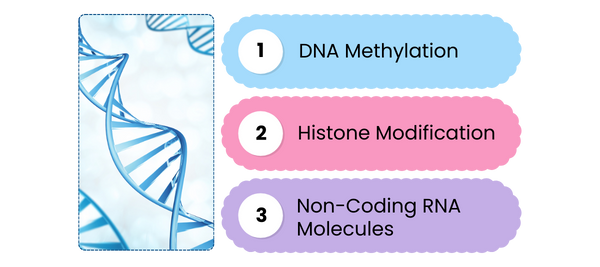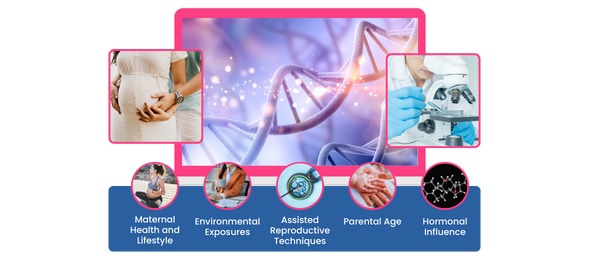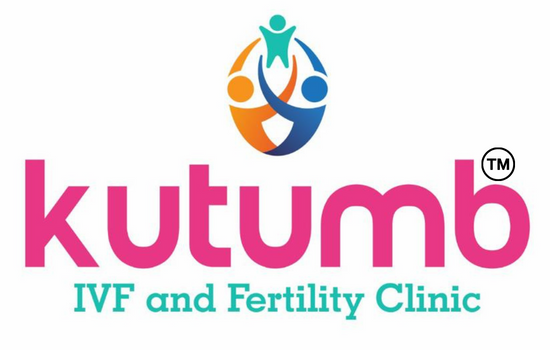Understanding Epigenetics: A Brief Overview
Epigenetics is a fascinating field of biology that explores how environmental factors and lifestyle choices can influence gene expression without altering the DNA sequence itself. It involves chemical modifications to DNA and histone proteins that regulate how genes are turned “on” or “off.” These modifications can be influenced by factors such as diet, stress, toxins, and even early embryonic development conditions.
Epigenetic changes play a crucial role in various biological processes, including growth, development, and disease susceptibility. Unlike genetic mutations, which are permanent, epigenetic modifications can be reversible and may even be passed on to future generations.
There are three main mechanisms of epigenetic regulation:

• DNA Methylation – The addition of methyl groups to DNA, which typically silences gene expression.
• Histone Modification – Chemical changes to histone proteins that affect DNA packaging and gene accessibility.
• Non-Coding RNA Molecules – Small RNA molecules that regulate gene activity by blocking or degrading messenger RNA (mRNA).
Epigenetics is vital for normal development and cellular function. However, disruptions in epigenetic patterns have been linked to various health issues, including cancer, metabolic disorders, and reproductive challenges.
How Epigenetics Influences Embryo Development
Epigenetics plays a crucial role in early embryonic development, influencing everything from cell differentiation to organ formation. During fertilization, an embryo undergoes significant epigenetic reprogramming, where most inherited epigenetic marks are erased and re-established to ensure proper development.
Some key ways epigenetics influences embryo development include:
1. Regulation of Gene Expression
Epigenetic modifications ensure that specific genes are activated or silenced at the right time. This regulation is crucial for proper cell division and specialization, enabling embryonic cells to develop into different tissues and organs.
2. Placental Development
The placenta, which provides oxygen and nutrients to the growing embryo, is highly dependent on epigenetic mechanisms. Disruptions in these processes may lead to complications like intrauterine growth restriction (IUGR) or preeclampsia.
3. Response to Environmental Factors
External factors such as maternal nutrition, exposure to toxins, and stress can impact an embryo’s epigenetic profile. For instance, inadequate folic acid intake during pregnancy can affect DNA methylation, potentially leading to neural tube defects.
4. Role in Assisted Reproductive Technologies (ART)
In IVF, embryos develop outside the natural uterine environment before implantation. While research suggests that epigenetic changes in IVF embryos may differ slightly from naturally conceived embryos, the overall impact remains under investigation. Some studies suggest a slightly higher risk of conditions like low birth weight, but the vast majority of IVF babies grow up healthy.
Epigenetics is not limited to IVF pregnancies—natural conceptions also experience epigenetic modifications influenced by environmental and maternal factors. However, understanding these mechanisms is crucial to optimizing IVF success rates and ensuring the best possible outcomes for babies born through assisted reproduction.
Epigenetic Changes in Natural vs. IVF Pregnancies
Epigenetics refers to modifications in gene expression without altering the DNA sequence. These changes can be influenced by environmental factors, lifestyle, and medical interventions, including IVF.
1. Natural Pregnancies:
◦ Epigenetic modifications occur naturally due to maternal diet, stress, and environmental exposures.
◦ The embryo develops within the natural reproductive environment, allowing gradual and adaptive epigenetic changes.
2. IVF Pregnancies:
◦ The embryo is exposed to external conditions like hormonal stimulation, culture media, and freezing.
◦ Some studies suggest subtle epigenetic differences in IVF babies, but most remain within a healthy range.
Factors That Impact Epigenetic Modifications

1. Maternal Health and Lifestyle
The mother’s overall health, including her diet, stress levels, and medical conditions, plays a crucial role in epigenetic modifications. A balanced diet rich in folic acid, vitamins, and antioxidants can support healthy gene expression, while stress and poor nutrition may lead to unfavorable epigenetic changes.
2. Environmental Exposures
External factors like pollution, radiation, and exposure to harmful chemicals can influence epigenetic patterns in both natural and IVF pregnancies. Toxins in the air, water, or food may affect DNA methylation and gene expression, potentially impacting fetal development.
3. Assisted Reproductive Techniques (ART)
In IVF, procedures such as ovarian stimulation, embryo culture, freezing, and ICSI can create a different developmental environment compared to natural conception. Although most studies suggest that these factors have minimal long-term effects, they may contribute to slight variations in epigenetic regulation.
4. Parental Age
Both maternal and paternal age can impact epigenetic modifications. Advanced maternal age is associated with changes in egg quality and gene expression, while paternal age can influence sperm DNA integrity, potentially affecting embryo development and implantation.
5. Hormonal Influence
Hormonal medications used in fertility treatments can affect the uterine environment and early embryonic development. Some studies suggest that hormonal variations might contribute to subtle epigenetic differences, but their overall impact remains an area of ongoing research.
Can Lifestyle and Environment Shape Your Baby’s Genes?
Yes! Epigenetics plays a crucial role in how genes are expressed, and lifestyle factors like diet, stress, and environmental exposure can influence this process. While genes are inherited, epigenetic modifications—such as DNA methylation—can turn genes on or off without altering the genetic code. This means factors like a mother’s nutrition, exercise, and mental well-being during pregnancy can impact the baby’s long-term health, including metabolism, immunity, and even brain development.
The Future of Epigenetics in Fertility and Pregnancy
With advancing research, epigenetics is opening new possibilities in fertility treatments and prenatal care. In IVF, understanding epigenetic mechanisms may help optimize embryo selection, improve implantation rates, and reduce risks of certain conditions. Future developments may also allow for personalized fertility treatments based on an individual’s epigenetic profile, making conception and pregnancy healthier and more successful.
Conclusion
Epigenetics plays a crucial role in determining how genes are expressed without altering the DNA sequence. It influences various biological processes, including fetal development, and is relevant to both natural conception and assisted reproductive technologies like IVF. While research suggests that IVF pregnancies may have unique epigenetic modifications due to laboratory conditions, epigenetic changes are not exclusive to IVF. Factors such as maternal health, nutrition, and environmental influences can affect gene expression in all pregnancies. Understanding epigenetics can help optimize fertility treatments and promote healthier pregnancy outcomes. If you’re looking for female infertility treatment in Vizag, consulting a fertility specialist can provide personalized care and solutions to enhance your chances of conception.
